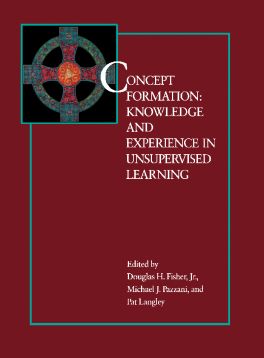Opis
Concept Formation: Knowledge and Experience in Unsupervised Learning presents the interdisciplinary interaction between machine learning and cognitive psychology on unsupervised incremental methods. This book focuses on measures of similarity, strategies for robust incremental learning, and the psychological consistency of various approaches.
Organized into three parts encompassing 15 chapters, this book begins with an overview of inductive concept learning in machine learning and psychology, with emphasis on issues that distinguish concept formation from more prevalent supervised methods and from numeric and conceptual clustering. This text then describes the cognitive consistency of two concept formation systems that are motivated by a rational analysis of human behavior relative to a variety of psychological phenomena. Other chapters consider the merits of various schemes for representing and acquiring knowledge during concept formation. This book discusses as well the earliest work in concept formation. The final chapter deals with acquisition of quantity conservation in developmental psychology.
This book is a valuable resource for psychologists and cognitive scientists.

